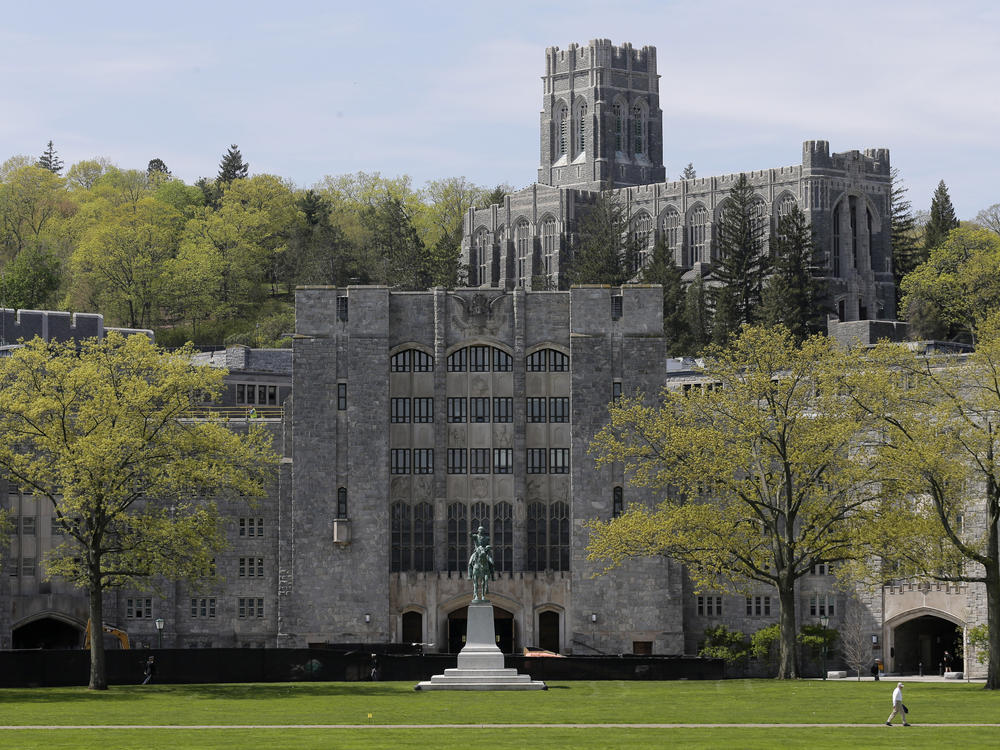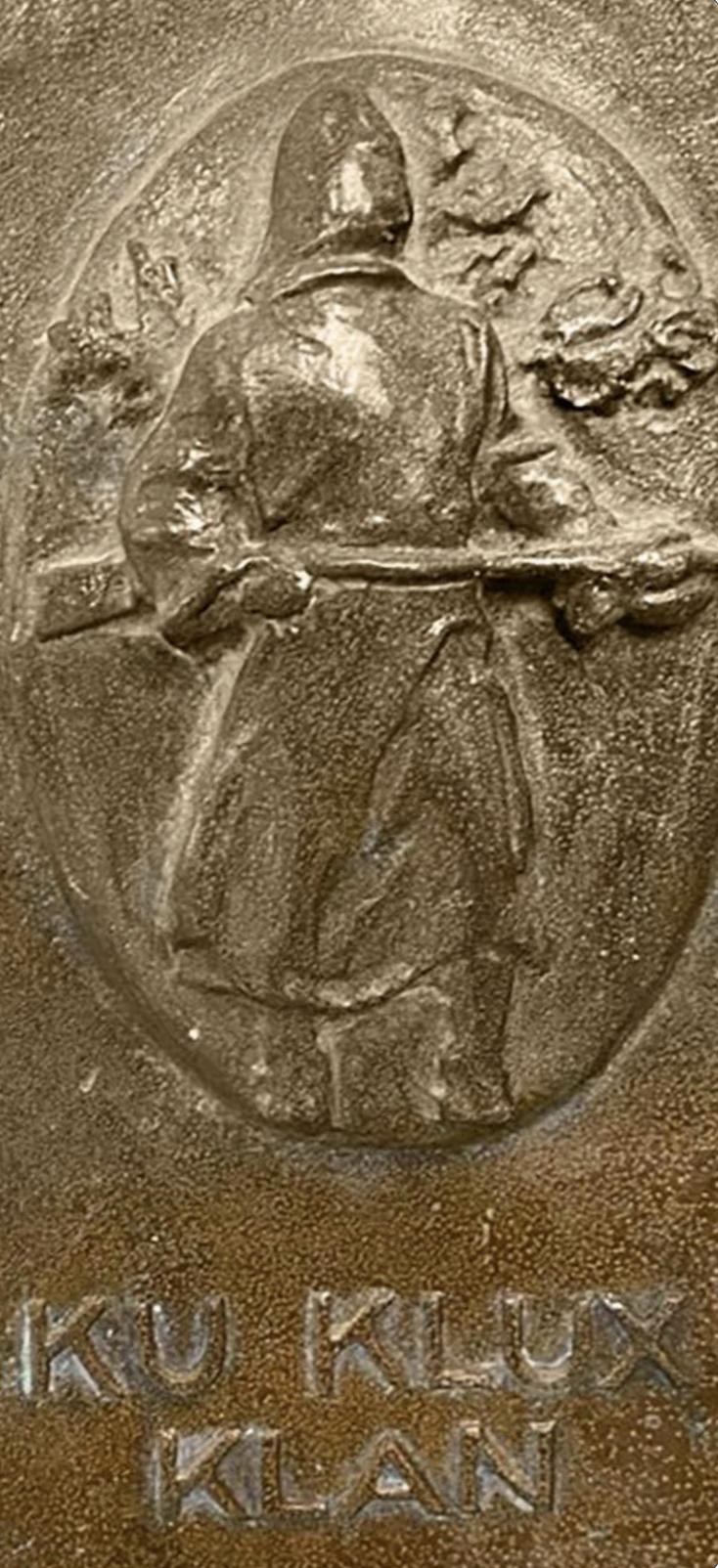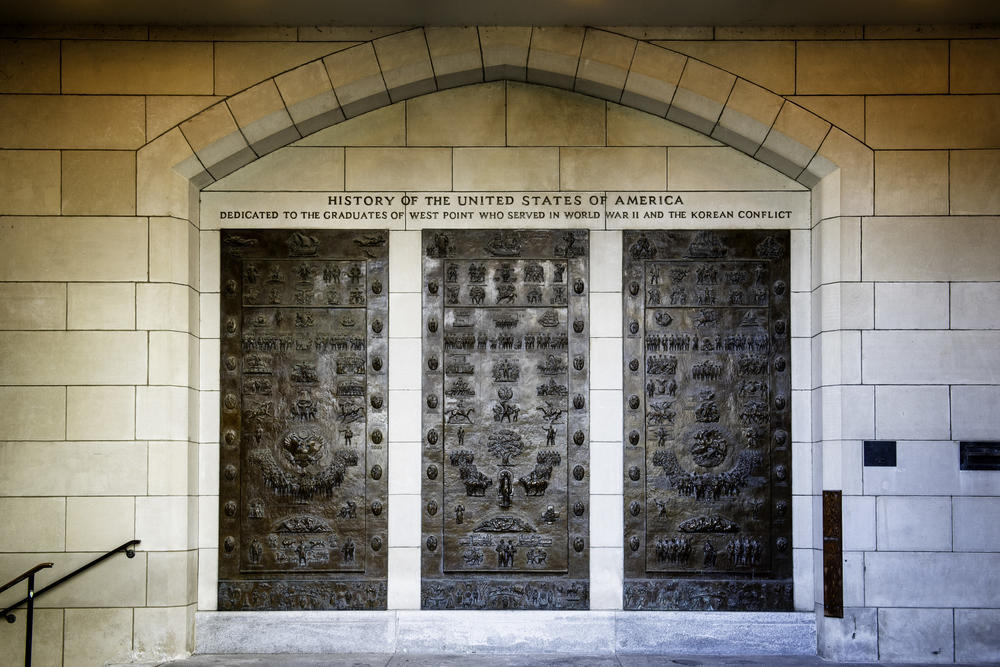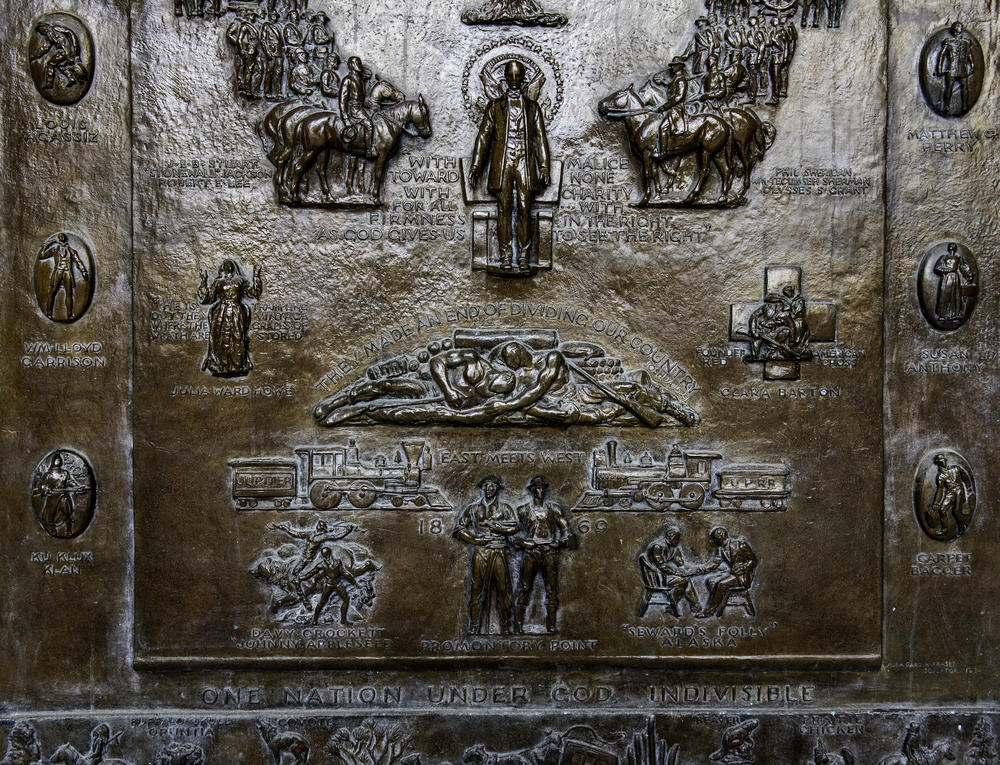Section Branding
Header Content
A plaque with the words 'Ku Klux Klan' still hangs on a building at West Point
Primary Content
Updated September 1, 2022 at 3:33 PM ET
A plaque with the words "Ku Klux Klan" written below a hooded figure holding what appears to be a rifle currently hangs on a building at the U.S. Military Academy at West Point in New York.
The marker referencing one of the country's most infamous hate groups is garnering attention due to a special commission formed to look into connections to the Confederacy at U.S. military bases and other properties.
Last year, the Naming Commission was charged with surveying Defense Department assets for ties to the Confederacy and making recommendations on how to rename or remove the references.
In a report released on Monday, the commission highlighted the presence of the Ku Klux Klan mounted marker at the entrance to Bartlett Hall, a science building at West Point, the U.S. Army's elite training school.
Though it noted that there are "clearly ties" between the KKK and the Confederacy, the plaque fell outside of its specific remit created by Congress, the commission said.
"The Commission encourages the Secretary of Defense to address DoD assets that highlight the KKK in Defense Memorialization processes and create a standard disposition requirement for such assets," the report said.
The KKK was formed in 1865 by six Confederate veterans of the Civil War and initially targeted Black people in the postwar South before also turning its hateful agenda against Jews, Catholics and others.
In a statement, the U.S. Military Academy's Public Affairs Office said the image is part of a large triptych that depicts the history of the U.S., and that the three bronze panels attempt to document "both tragedy and triumph" in America's past.
"Among many other symbols, the triptych also includes individuals who were instrumental in shaping principal events of that time, and symbols like the 'Tree of Life' that depict how our nation has flourished despite its tragedies," the statement said.
The academy added in a second statement that it was reviewing the naming commission's recommendations and would work with the Department of the Army to carry out any approved changes.
"West Point's mission is to develop leaders of character who internalize Army Values, the ideals of Duty, Honor, Country, and the Army Ethic," that statement said. "As a values-based institution, we are fully committed to creating a climate where everyone is treated with dignity and respect."
Why the U.S. government is reviewing names tied to the Confederacy
Though the commission concluded that the KKK plaque was beyond its purview, the eight-member body found other assets linked to the Confederacy at West Point and the U.S. Naval Academy in Annapolis, Md.
They included barracks, a housing area and a child development center at West Point named for Confederate Gen. Robert E. Lee, as well as the superintendent's quarters and a road at the Naval Academy named after Confederate Adm. Franklin Buchanan, to name just a few.
Notably, the commission has made recommendations for renaming nine Army bases across the South with names tied to Confederate figures.
For example, Louisiana's Fort Polk would be renamed Fort Johnson in honor of William Henry Johnson, a Black soldier renowned for his heroics in World War I.
The commission also suggested renaming Fort Hood in Texas as Fort Cavazos after Richard E. Cavazos, the first Hispanic American to become a four-star general in the Army.
Early last year, Congress overrode President Trump's veto and passed a defense spending bill that included a provision requiring the renaming of military assets with names linked to the Confederacy. It followed the racial justice protests that erupted across the country in the summer of 2020.
The secretary of defense has the final say on renaming bases and other assets, and a plan is expected to be implemented by Jan. 1, 2024, according to the commission.
Copyright 2022 NPR. To see more, visit https://www.npr.org.




